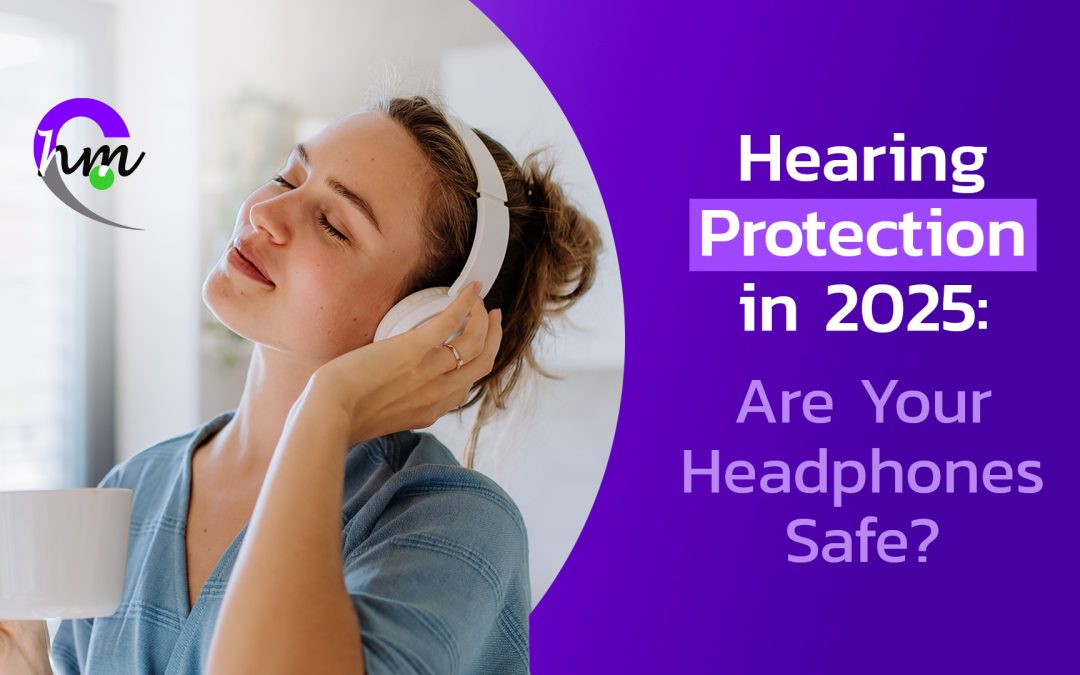Do you really need hearing protection when using headphones?
Yes – prolonged exposure to loud sounds through headphones can cause permanent damage to your hearing. Whether it’s music, gaming, or work calls, protecting your ears has never been more important. With more Australians using earbuds and headphones daily, understanding how to use them safely is the first step in effective hearing protection. At Hearing Matters, we’re here to help you protect your hearing today and keep it strong for the future.
Why Hearing Protection Matters
Noise-induced hearing loss is one of the most preventable health conditions worldwide. Once your hearing is damaged, it cannot be restored which is why early awareness is essential. Effective hearing protection is not just about earplugs at a concert or in a noisy workplace. It also means safe habits with everyday devices like headphones.
Hearing loss from unsafe listening often starts subtly, with ringing in the ears or needing to turn the volume up higher over time. Left unchecked, it can lead to long-term problems that affect relationships, work, and overall quality of life.
Do Noise Cancelling Headphones Protect Hearing?
A common question is: do noise cancelling headphones protect hearing? The answer is: yes and no. Noise-cancelling technology reduces background noise, which means you don’t need to turn the volume up as high. This can help reduce risk, but if the volume is still too loud, the damage can occur regardless.
Safe listening is about volume and duration. Experts recommend the “60/60 rule”: listen at no more than 60% volume for 60 minutes, then take a break.
For more detailed guidance on safe listening levels worldwide, the World Health Organization has an excellent guide on hearing protection and safe listening.
Headphones and Hearing Aids
Another question we often hear is whether hearing aids and headphones can be used together. The short answer is yes, most modern hearing aids are compatible with headphones, though comfort and sound quality vary depending on the style of both the hearing aid and the headphones.
At Hearing Matters, our audiologists can advise you on the best options if you already wear hearing aids but still want to enjoy music or calls through headphones.
Other Forms of Hearing Protection
Beyond headphones, there are many scenarios where personal hearing protection should be used:
- Workplaces: Factories, construction sites, and other noisy environments often require certified ear protection.
- Recreation: Concerts, motorsport events, or even mowing the lawn can expose you to harmful noise levels.
- Daily life: For children, toys and devices that emit loud sounds can also be risky.
The key is consistency, making hearing protection a habit rather than an afterthought.
Signs You May Already Have Hearing Damage
If you’re concerned about your hearing, here are some signs to look out for:
- Ringing or buzzing in the ears (tinnitus)
- Struggling to follow conversations in noisy places
- Needing higher volumes on TV, radio, or headphones
- Feeling exhausted after social interactions due to listening effort
These are red flags that your ears may already be experiencing stress from unsafe listening habits.
How Hearing Matters Can Help
At Hearing Matters, we believe prevention is always better than treatment. But if you’re noticing potential hearing loss signs, we can help with:
- Comprehensive hearing tests for all ages
- Personalised advice on safe listening and hearing protection
- Support with tinnitus management
- Expert fittings for hearing aids, including advice on compatibility with headphones
If you’re now googling for an ‘audiologist near me’ or need guidance from an audiologist that’s Adelaide based, our team is ready to provide expert care across multiple locations.
Protect Your Hearing Today
Headphones are part of everyday life but without the right habits, they can put your hearing at risk. The good news is that with smart use and effective hearing protection, noise-induced hearing loss can be avoided.
👉 Don’t wait until you notice ringing in your ears or missed conversations. Book a free hearing test with Hearing Matters today, and get expert advice on protecting your hearing for years to come.
